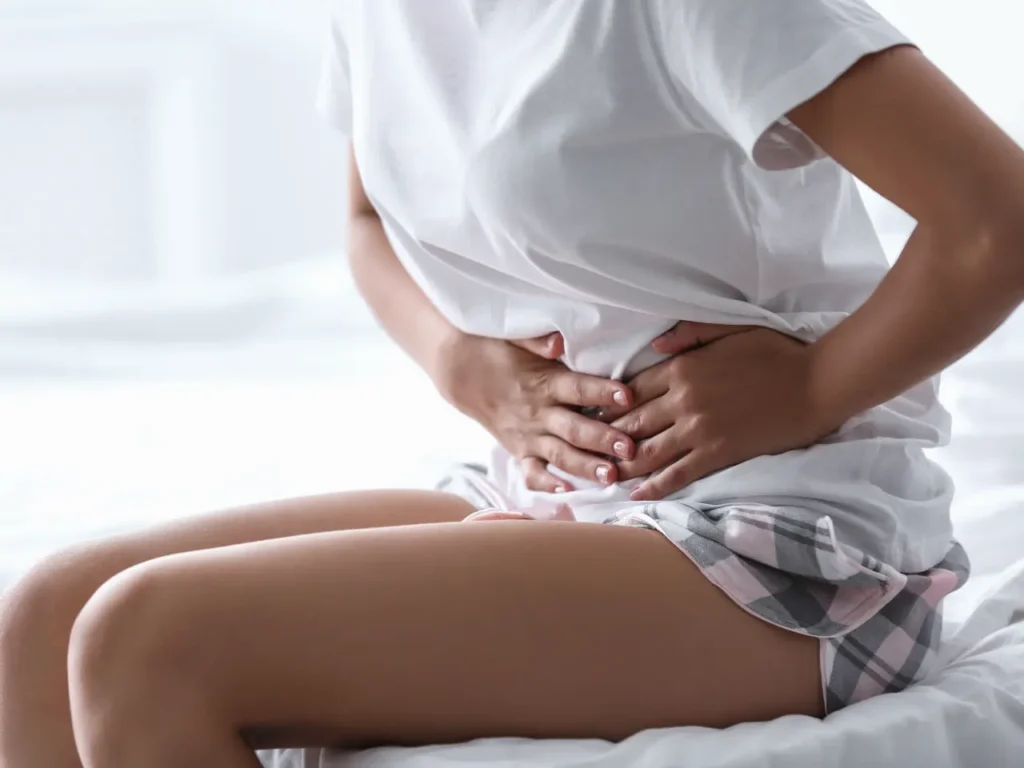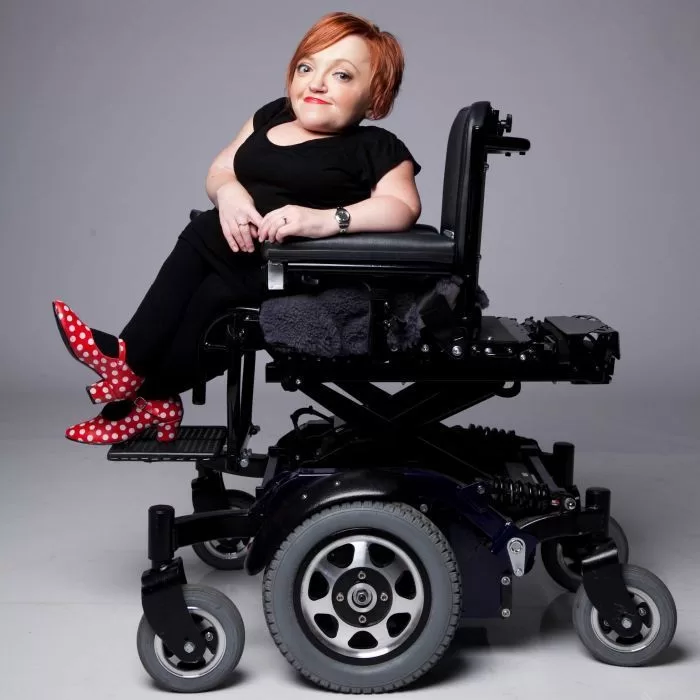Updated on July 20, 2024

What is Endometriosis?
Endometriosis is a chronic medical condition that affects millions of women worldwide. It occurs when tissue similar to the lining of the uterus grows outside of the uterus, causing pain, inflammation, and sometimes fertility issues.
Beyond its physical effects, endometriosis can also significantly impact a person’s quality of life, leading to questions and conversations about its classification as a disability.
Symptoms of Endometriosis
Endometriosis is a complex condition, and symptoms can manifest differently for individuals. While some people may experience severe combined symptoms, others may have minimal or no symptoms at all. It is important to see a healthcare professional for an accurate diagnosis and management.
Some common symptoms of endometriosis include:
- Pain in lower back or pelvic area
- Heavy or irregular periods
- Pain during or after sexual intercourse
- Pain during bowel movements or urination
- Infertility
- Fatigue
- Diarrhea or constipation
- Back pain
- Headaches
- Nausea
Is Endometriosis Considered a Disability in Australia?
In Australia, at least one in nine girls and women are living with endometriosis. It is not officially recognized as a disability but it meets the criteria of how a disability is defined.
To categorize a medical condition as a disability is often dependent on various factors, including its impact on a person’s ability to carry out daily activities, work, and participate in society.
According to the Australian Human Rights Commission, disability is defined under the Disability Discrimination Act 1992 as “any condition, impairment, or disorder that has lasted or is likely to last for at least six months and restricts a person’s ability to carry out everyday activities.”
While endometriosis is not inherently classified as a disability in Australia, it can certainly meet the criteria for disability in some circumstances. The condition can cause severe pelvic pain, fatigue, and other symptoms that can greatly limit a person’s ability to work, engage in social activities, and maintain their overall well-being. Many individuals with endometriosis require frequent medical appointments, surgeries, and treatments, which can further disrupt their daily lives.
The Australian Government Department and Aged Care considers Endometriosis a chronic condition and they are addressing endometriosis at a national level via the National Action Plan for Endometriosis which was released in July 2018. It is dedicated to research, awareness, education, clinical management and care. They’ve also raised about $17.4 million for 22 endometriosis and pelvic pain GP clinics across Australia which are providing cross-functional services and care for women with endometriosis and pelvic pain.
So, depending on the level of severity, individuals can file a disability claim to help with getting the support that’s needed at work and in other environments. They can also receive support from support groups and the government. In 2018, Sarah Berry filed a complaint to the Human Rights Commission and got the Judge to rule that endometriosis and severe dysmenorrhea fell within the definition of the Disability Discrimination Act.
As women suffer from this condition, there’s a lot of awareness and sensitization on how to manage this condition from individuals, support groups, and the government. In 2017, Shani Olive, Karlie Wilkinson, and other women started various petitions to Malcolm Turnbull, former Prime Minister of Australia, and Greg Hunt, former Minister for Health on the need to recognize Endometriosis as a disability in Australia. The petition garnered a lot of support and although it was not exactly recognized as a disability, Grey Hunt announced the first-ever national action plan on endometriosis, apologized to sufferers, committed to funding research, and pledged his support to those suffering from the condition.
Legal support for individuals with Endometriosis
- While endometriosis has not been explicitly labeled as a disability, individuals living with the condition are still entitled to certain legal protections and support systems in Australia. The Disability Discrimination Act prohibits discrimination against people with disabilities in various areas, including employment, education, and access to goods and services.
- The National Disability Insurance Scheme (NDIS) provides support and services to Australians under the age of 65 who have a permanent and significant disability. While endometriosis itself may not always meet the NDIS criteria, individuals with severe symptoms or complications that substantially impact their daily functioning may be eligible for support under the scheme.
- Employers in Australia are required to make reasonable adjustments to accommodate employees with disabilities, including those with endometriosis. This may include flexible working arrangements, modified duties, or additional support to manage symptoms in the workplace.
Can Endometriosis be cured?
Currently, there is no cure for endometriosis. However, various treatment options are available to manage symptoms and improve quality of life. These may include medications to alleviate pain and inflammation, hormonal therapies to regulate menstrual cycles and reduce endometrial growth, and surgical interventions to remove endometrial implants or scar tissue.
Additionally, lifestyle changes and complementary therapies may offer some relief.
Is endometriosis an auto-immune disease?
Endometriosis is not classified as an autoimmune disease. However, due to its inflammatory nature, it can increase the risk of autoimmune conditions as it can trigger an imbalance in the immune system.
While autoimmune diseases involve the immune system attacking the body’s tissues, endometriosis is characterized by the abnormal growth of tissue in areas outside the uterus.
Does endometriosis run in families?
Studies have shown that endometriosis may have a genetic component to it, as it tends to run in families. Women with a close relative, such as a mother or sister, who has endometriosis are at a higher risk of developing the condition themselves.
However, the exact genetic factors contributing to endometriosis are still not known, and other environmental and hormonal factors may also play a role in developing endometriosis.
Conclusion
While endometriosis may not be officially classified as a disability in Australia, it undoubtedly meets the criteria for disability in many cases. People living with endometriosis face significant challenges that affect their daily lives, work, and overall well-being. One must recognize the complex nature of this condition and provide adequate support to improve the quality of life for those affected. The need for continual awareness and sensitization is important so that more persons who are affected that be accommodated and cared for.
Looking for reliable and trustworthy care services?
At Centre Disability Support, we offer tailored support services for individuals with disabilities throughout Australia. We offer housing options in Logan, Ipswich and Brisbane areas, where we provide independent supported living or assist individuals in finding suitable options for individualised living.
Additionally, we provide day-to-day support for individuals with mental health issues, complex behaviour and other types of disabilities. We also have support coordinators available to assist with planning, navigating NDIS plans, and offering casework support.
Whether you’re seeking support for yourself, or a loved one, or simply wish to learn more about our services, we’re here to help.
MORE FROM CENTRE DISABILITY SUPPORT
Is Bipolar Disorder a Disability?
10 Disability Activists in Australia You Should Know
IS ANKYLOSING SPONDYLITIS A DISABILITY IN AUSTRALIA?
IS PMDD A DISABILITY IN AUSTRALIA?
IS AUTISM A DISABILITY IN AUSTRALIA?



